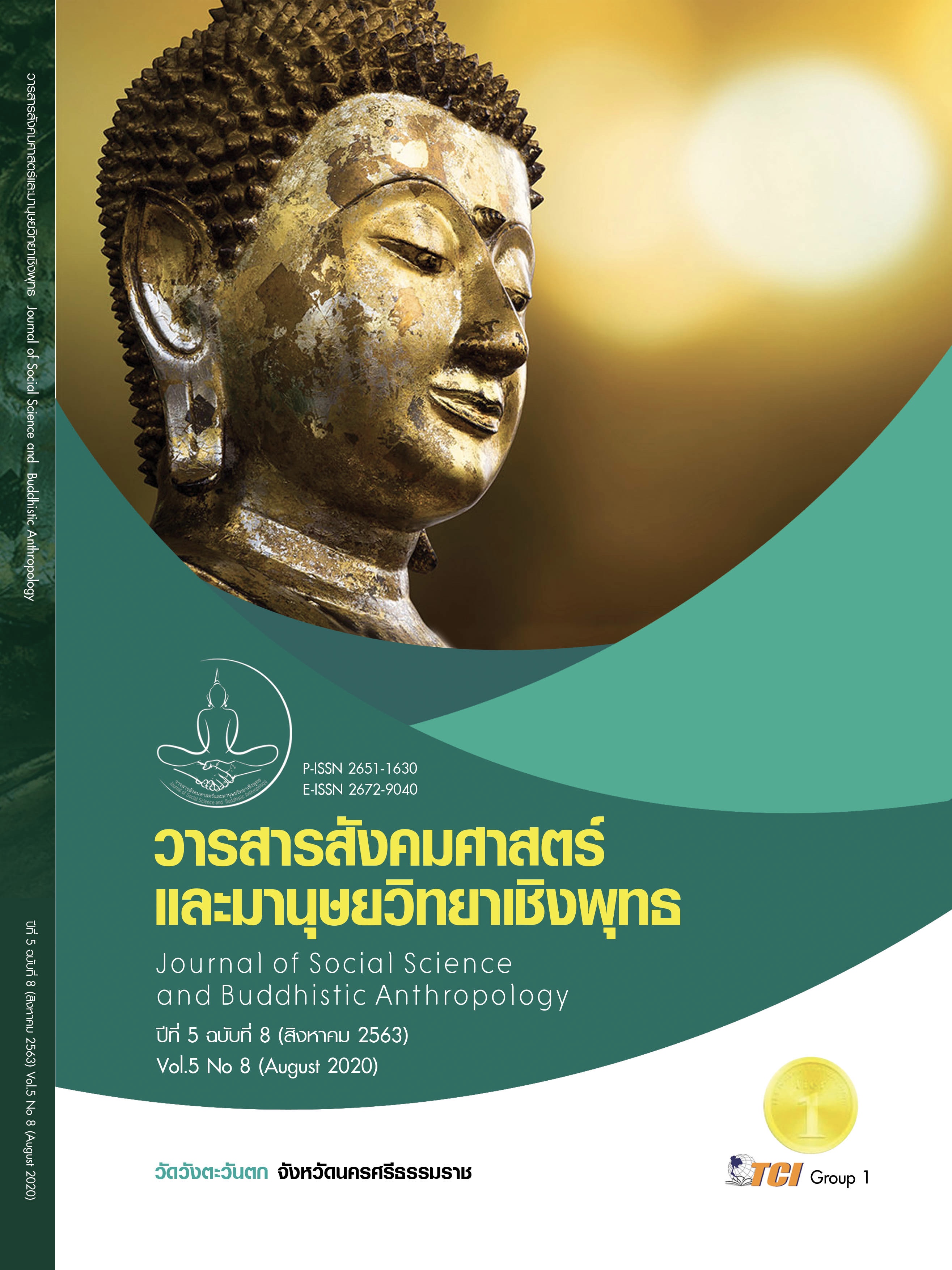CAMPAIGN BEHAVIOUR OF POLITICAL PARTIES ON SOCIAL MEDIA: FACEBOOK
Keywords:
Facebook, Elections, CampaignAbstract
This research article has the objectives to study: 1) The nature of the campaigning of political parties on social media facebook. 2) The types of communication on social media (Facebook) of political parties including content types, media types, number of posts per day. The researcher relied on qualitative methods from literatures, researches, related theoretical concepts and political movement information from the facebook pages of the political parties in a purposive sampling. The results of the study are as following campaign behaviour of political parties on social media facebook, found that political parties have posted messages for campaign during the election campaign total of 1,231 times and the average per day is 25 posts per day. Also during the last month of campaigning, political parties have posted messages at a higher rate compared to the first 2 months before the election. Regarding the communication types of political parties can be mostly divided into for the content types. Political parties focus on providing information or news of political parties to people who follow the pages. As for the types of media used in public relations political parties use the images for the most publicity, up to 524 posts, followed by 347 public relations videos and 238 live posts respectively. Also the types of date posted during the election campaign, political parties have the same number of posts between official days and holidays, which is 12 posts a day. Campaigning on social media in the digital architectures can be considered as important strategy for promoting the political parties to win the election.
References
ธัญมาศ ทองมูลเล็ก และปรีชา วิจิตรธรรมรส. (2560). การศึกษาปัจจัยที่มีผลต่อการยอมรับและการใช้งานเครือข่ายสังคมออนไลน์ในสังคมไทย. The journal of social communication innovation, 5(2),114 - 124.
พระราชบัญญัติประกอบรัฐธรรมนูญว่าด้วยการเลือกตั้งสมาชิกสภาผู้แทนราษฏร. (2561). ราชกิจจานุเบกษา เล่มที่ 135 ตอนที่ 68 ก. หน้า 40-97. 6 เมษายน 2561.
พิมลพรรณ ไชยนันท์ และพิรงรอง รามสูต. (2556). สื่อใหม่กับการสื่อสารทางการเมืองของเยาวชนไทย. Journal of Communication Arts, 31(2), 37-59.
พีรยุทธ โอรพันธ์. (2560). วัฒนธรรมทางการเมืองและการสื่อสารทางการเมืองของชาวไทยเชื้อสายมลายูในประเทศมาเลเซีย. วารสารศาสตร์, 10(2), 173 - 173.
ภรภัทร กิตติมหาโชค และพัชนี เชยจรรยา. (2561). พฤติกรรมการเปิดรับและเนื้อหาละคร บุพเพสันนิวาสที่ส่งผลต่อพฤติกรรมตามกระแสนิยมไทยของผู้รับชม. Journal of communication and innovation NIDA, 5(1), 41-61.
สำนักงานคณะกรรมการการเลือกตั้ง. (2562). กกต.ประกาศผลการเลือกตั้งสมาชิกสภาผู้แทนราษฎรแบบบัญชีรายชื่อ. เรียกใช้เมื่อ 8 ธันวาคม 2562 จาก https://www.ect.go .th/ect_th/download/article/article20190508184334.pdf.
อภิชัจ พุกสวัสดิ์และกุลทิพย์ ศาสตระรุจิ. (2556). การประชาสัมพัน์ภายใต้กระแสสื่อสังคมออนไลน์. วารสารการประชาสัมพันธ์และการโฆษณา, 6(2), 24 - 38.
Balakhonskaya, L. V. et al. (2019). Communication Strategy of Political Leader’s Image Mythologization in Digital Space during the Course of Election Campaign: Comparative Aspect.in Communication Strategies in Digital Society Workshop.
Cottle, S. (2011). Media and the Arab uprisings of 2011. Journalism, 12(5), 647 - 659.
Dehghani, M. & Tumer, M. (2015). A research on effectiveness of Facebook advertising on enhancing purchase intention of consumers. Computers in Human Behavior, 49(3), 597- 600.
Howard, P. N. & Hussain, M. M. (2011). The upheavals in Egypt and Tunisia: The role of digital media. Journal of democracy, 22(3), 35 - 48.
Lev-On, A. & Haleva - Amir, S. (2018). Normalizing or equalizing? Characterizing Facebook campaigning. new media & society, 20(2), 720-739.
Oyebode O. & Adegoju A. (2017). Appraisal Resources in Select WhatsApp Political Broadcast Messages in the 2015 Presidential Election Campaign in Nigeria. Journal of Pan African Studies, 10(10), 29 - 48.
Sabate, F. et al. (2014). Factors influencing popularity of branded content in Facebook fan pages. European Management Journal, 32(6), 1001 - 1011.
Walter, D., & Ophir, Y. (2019). The Elephant and the Bird: Republican Candidates’ Use of Strategy and Issue Framing in Twitter During the 2016 Republican Presidential Primaries. International Journal of Communicatio, 13(23), 4960 - 4982.
WeAreSocial. (2019). DIGITAL 2019. Run on 10 December 2019 จาก https:// datareportal.com/reports/digital-2019-thailand.









